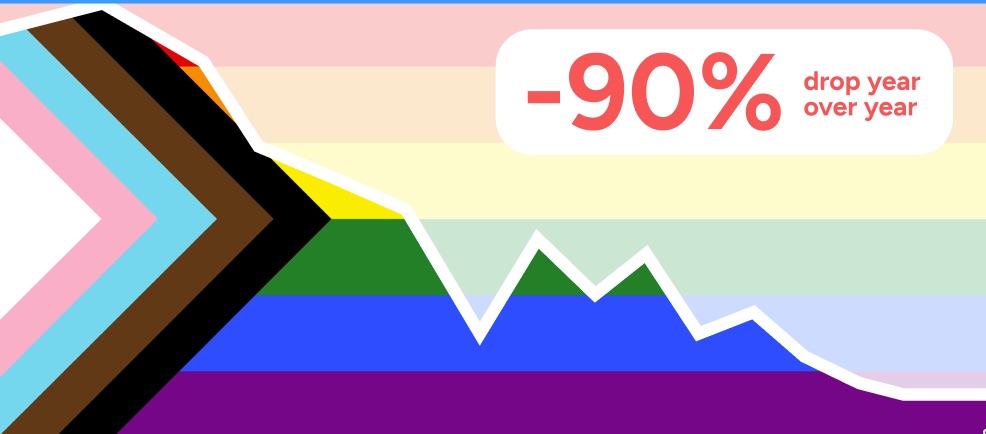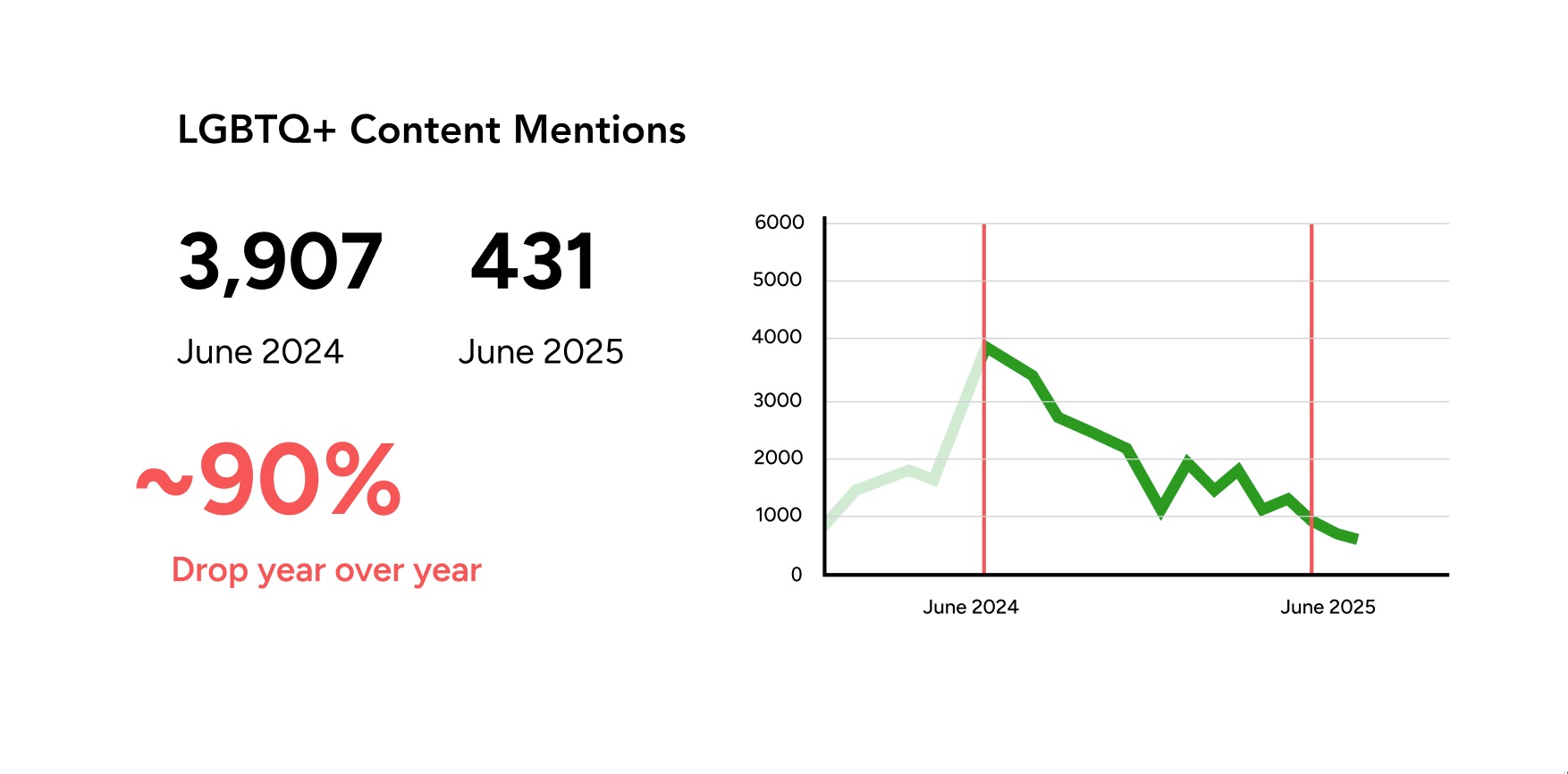
Vanishing Visibility: Executive Silence on LGBTQ+ in 2025
In recent years, many Fortune 500 executives built reputations as vocal supporters of the LGBTQ+ community—especially during Pride Month. Their social media activity frequently highlighted supportive messaging, event sponsorship and participation, and a commitment to inclusive policies.
We have noticed a considerable decline - up to 90% - in the total volume of communications with LGBTQ+ related themes across all tracked industry sectors.

Cometrics measures how executives, companies and boards talk about issues related to geopolitics, sustainability and technology. Our customizable lens tracks Executive voice alignment and dissonance with Corporate Communications, highlighting risk and opportunity.
Let’s take a closer look at this dramatic shift.
The drop is across all industry sectors

The drop has been mostly uniform across all 12 industry sectors with Technology (93%), Pharmaceuticals (89%) and Finance (80%) showing the largest drop of mentions, year over year.
So, what could be behind this retreat?
1. Shifting Internal Communications Strategies
Some executives may not be posting less because they care less—but because their communication channels have changed. Internal-facing DEI efforts may continue to expand, even as external messaging becomes quieter or more centralized through corporate PR teams rather than individual leaders.
This may reflect a more deliberate, controlled approach to brand messaging overall, especially in large corporations under constant scrutiny.

2. Polarization Fatigue and Risk Management
Corporate leaders are increasingly cautious in an era where every public stance can spark backlash from one side or the other. Companies that once viewed LGBTQ+ support as a relatively safe and progressive message now face sharper pushback—particularly from political groups or regions pushing anti-DEI or “anti-woke” narratives.
Even internal DEI teams are being downsized or restructured at some companies, with executives taking note of the changing risk landscape. In this climate, neutrality or silence may seem like the path of least resistance.
3. "Rainbow Capitalism" Criticism
There’s been growing criticism of brands that only show support for LGBTQ+ communities during Pride Month without meaningful year-round action. The phrase “rainbow capitalism” has gained traction, and consumers—especially younger ones—are calling out performative allyship.
Executives may be pulling back to avoid being accused of virtue signaling or tokenism, especially if they feel their company hasn't backed up words with measurable progress.

4. A Broader Cultural Realignment
Finally, we may be seeing a broader corporate reset. The post-2020 wave of activist business leadership—spurred by movements like Black Lives Matter and a global reckoning around inclusion—is tapering. While many executives remain privately supportive, public advocacy is becoming less frequent as the political and cultural landscape shifts.
Whether driven by fear, fatigue, or strategic pivoting, the shift raises important questions: What does authentic advocacy look like in 2025? And how can companies stay committed to inclusion without turning it into a performative checkbox?
As corporate communications leadership evolves, only Cometrics.io offers real-time insight into what’s driving the next phase.